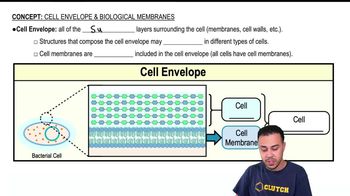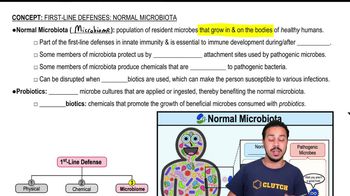Which of the following is a scientific name?
a. Mycobacterium tuberculosis
b. Tubercle bacillus
 Verified step by step guidance
Verified step by step guidance



Which of the following is a scientific name?
a. Mycobacterium tuberculosis
b. Tubercle bacillus
Which of the following statements about E. coli is false?
a. E. coli was the first disease-causing bacterium identified by Koch.
b. E. coli is part of the normal microbiome of humans.
c. E. coli is beneficial in human intestines.
d. E. coli gets nutrients from intestinal contents.
e. None of the above; all the statements are true.
How did the idea of spontaneous generation come about?
Which of the following is not a characteristic of bacteria?
a. are prokaryotic
b. have peptidoglycan cell walls
c. have the same shape
d. grow by binary fission
e. have the ability to move
Which of the following is the most important element of Koch’s germ theory of disease? The animal shows disease symptoms when
a. the animal has been in contact with a sick animal.
b. the animal has a lowered resistance.
c. a microorganism is observed in the animal.
d. a microorganism is inoculated into the animal.
e. microorganisms can be cultured from the animal.
Into which field of microbiology would the following scientists best fit?
<IMAGE>